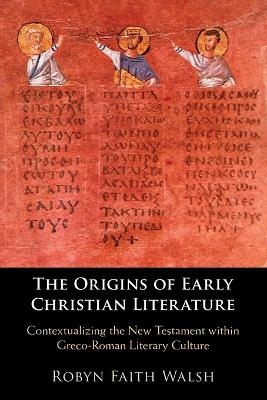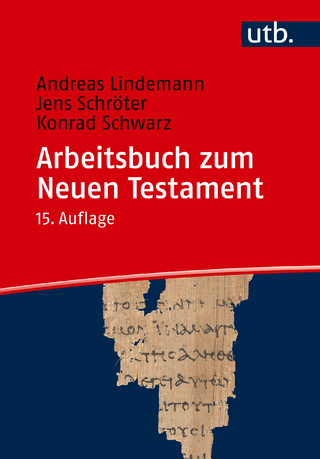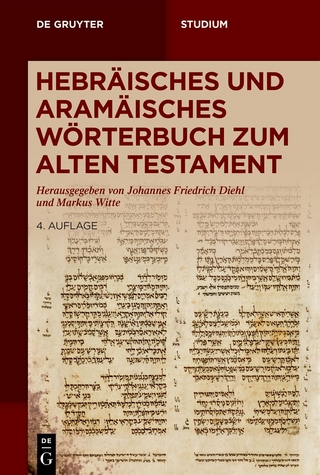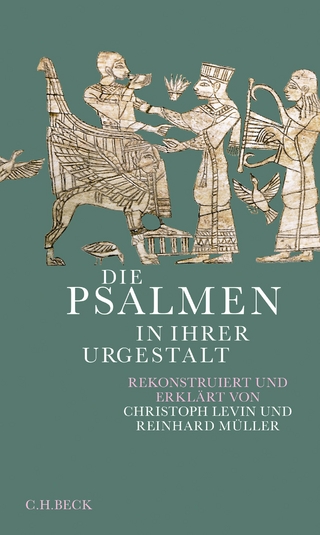
The Origins of Early Christian Literature
Contextualizing the New Testament within Greco-Roman Literary Culture
Seiten
2023
Cambridge University Press (Verlag)
978-1-108-79313-1 (ISBN)
Cambridge University Press (Verlag)
978-1-108-79313-1 (ISBN)
Conventional approaches to the Synoptic gospels argue that the gospel authors acted as literate spokespersons for religious communities, akin to the Romantic poet speaking for the common folk. This book argues that they were written by educated elites in dialogue with Greco-Roman literature, not exclusively by and for Christian communities.
Conventional approaches to the Synoptic gospels argue that the gospel authors acted as literate spokespersons for their religious communities. Whether described as documenting intra-group 'oral traditions' or preserving the collective perspectives of their fellow Christ-followers, these writers are treated as something akin to the Romantic poet speaking for their Volk - a questionable framework inherited from nineteenth-century German Romanticism. In this book, Robyn Faith Walsh argues that the Synoptic gospels were written by elite cultural producers working within a dynamic cadre of literate specialists, including persons who may or may not have been professed Christians. Comparing a range of ancient literature, her ground-breaking study demonstrates that the gospels are creative works produced by educated elites interested in Judean teachings, practices, and paradoxographical subjects in the aftermath of the Jewish War and in dialogue with the literature of their age. Walsh's study thus bridges the artificial divide between research on the Synoptic gospels and Classics.
Conventional approaches to the Synoptic gospels argue that the gospel authors acted as literate spokespersons for their religious communities. Whether described as documenting intra-group 'oral traditions' or preserving the collective perspectives of their fellow Christ-followers, these writers are treated as something akin to the Romantic poet speaking for their Volk - a questionable framework inherited from nineteenth-century German Romanticism. In this book, Robyn Faith Walsh argues that the Synoptic gospels were written by elite cultural producers working within a dynamic cadre of literate specialists, including persons who may or may not have been professed Christians. Comparing a range of ancient literature, her ground-breaking study demonstrates that the gospels are creative works produced by educated elites interested in Judean teachings, practices, and paradoxographical subjects in the aftermath of the Jewish War and in dialogue with the literature of their age. Walsh's study thus bridges the artificial divide between research on the Synoptic gospels and Classics.
Robyn Faith Walsh is Assistant Professor of the New Testament and Early Christianity at the University of Miami. Editor of the Database of Religious History, she has published articles in Classical Quarterly and Jewish Studies Quarterly, among other publications.
1. The myth of Christian origins; 2. The Romantic 'big bang': German Romanticism and inherited methodology; 3. Authorship in antiquity: specialization and social formations; 4. Redescribing early Christian literature: the gospels, the Satyrica, and anonymous sources; 5. The gospels as subversive biography.
| Erscheinungsdatum | 23.01.2023 |
|---|---|
| Zusatzinfo | Worked examples or Exercises |
| Verlagsort | Cambridge |
| Sprache | englisch |
| Maße | 152 x 228 mm |
| Gewicht | 380 g |
| Themenwelt | Religion / Theologie ► Christentum ► Bibelausgaben / Bibelkommentare |
| Religion / Theologie ► Christentum ► Kirchengeschichte | |
| Geisteswissenschaften ► Sprach- / Literaturwissenschaft ► Anglistik / Amerikanistik | |
| Geisteswissenschaften ► Sprach- / Literaturwissenschaft ► Literaturwissenschaft | |
| ISBN-10 | 1-108-79313-4 / 1108793134 |
| ISBN-13 | 978-1-108-79313-1 / 9781108793131 |
| Zustand | Neuware |
| Informationen gemäß Produktsicherheitsverordnung (GPSR) | |
| Haben Sie eine Frage zum Produkt? |
Mehr entdecken
aus dem Bereich
aus dem Bereich
Buch | Softcover (2021)
De Gruyter (Verlag)
29,95 €


